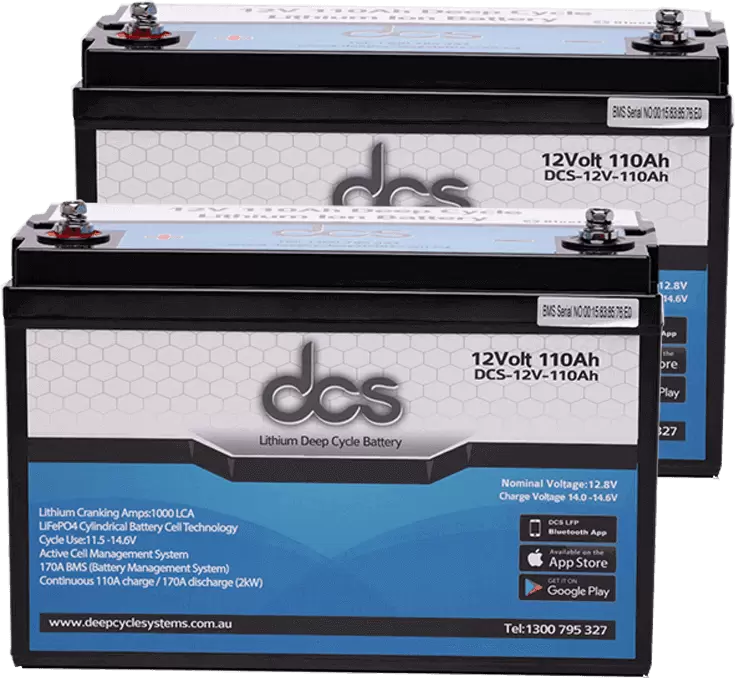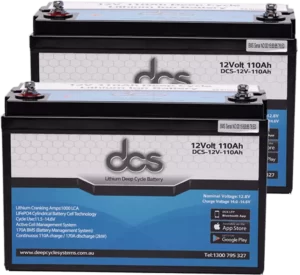Solar deep cycle batteries have become a great alternative to traditional power sources like gas and diesel generators. They are straightforward to use and require less maintenance than other batteries. The main reason why people prefer using solar deep-cycle batteries over others is that they produce no emissions when in use.
Lithium Batteries Have A Longer Service Life
Lithium batteries have a longer service life. They are more reliable and durable than other batteries, so they won’t need to be replaced nearly as often. They also charge faster and can be discharged more profoundly. You’ll save money on electricity bills by using lithium deep cycle batteries instead of lead-acid or AGM batteries in your solar power system. They’re also reusable! If you run out of power while camping, recharges them with a solar panel (available at any hardware store).
You won’t have to worry about the batteries being damaged by freezing temperatures. Lithium deep-cycle batteries are highly resistant to cold and can be used in all climates without any concerns about their performance.
Lithium Solar Batteries Are Extremely Lightweight
Lithium solar batteries are incredibly lightweight and compact. Not only is this important for transporting, but it can also help you save money if you need to hire a delivery service to bring your batteries from point A to point B.
- Thin-film batteries are very flexible and can be rolled up or folded without damage. It makes them well-suited for space applications where weight is of utmost concern. -Thin-film batteries offer a high packing density, which means they can store more energy per unit volume than other rechargeable batteries.
- Thin-film batteries are durable and can withstand many cycles of charge and discharge without losing their ability to store energy. This makes them ideal for use in electric vehicles that travel long distances on a single charge.
 Solar Lithium Batteries Are Safer Than Other Batteries
Solar Lithium Batteries Are Safer Than Other Batteries
The safety of solar lithium batteries is a significant reason to choose them over other types. As you’re probably aware, lithium-ion batteries have been known to explode due to their highly volatile nature. However, solar lithium batteries are not prone to this kind of malfunction. They’re safer than any other type of battery!
In addition to being safe from explosion and fire risks, solar lithium batteries also have a shallow risk of leaking toxic chemicals into your environment, unlike lead acid or nickel-cadmium (NiCd) batteries that contain harmful substances like lead oxide or cadmium oxide respectively.
Solar lithium batteries are also more efficient than other types of batteries. A typical lead acid battery only has a lifespan of two to three years before needing to be replaced, while the lifespan of solar lithium batteries is typically five times longer!
Highest Performance In Cold Conditions
Lithium batteries will perform better than other types of batteries in cold conditions. If you live in a colder area and need a deep cycle battery for your home or business, a lithium battery will be a good choice.
Lithium ion batteries can be stored at below-freezing temperatures without damaging their ability to hold a charge and function under normal conditions when needed again. You can keep your lithium deep cycle battery inside or outside depending on where you have room for it based on the size of your space requirements, but if possible, keep them out so they can get some fresh air while still being protected from extreme heat or cold temperatures that could cause damage over time if left exposed too long without protection from these elements (like an insulated box).
If you have access to an extra refrigerator, one great way would be to place this type of device there! This option will give maximum protection against temperature changes as well as prevent anyone else from accessing it, which means no unauthorized activity happening due to its location being unknown by others around town who may want what’s inside. Which could occur if opening up some random fridge door found near someone’s house during lunch hour break hour at work because it looked like something tasty might be hiding behind those doors and maybe even some extra cash too?
Deep Cycle Batteries Are Environmentally Friendly
Deep cycle batteries use lithium-ion chemistry, which means they have a shallow toxicity level and are non-toxic. It is what makes them environmentally friendly. Lithium is a naturally occurring element in the earth’s crust and is present in many minerals such as spodumene and petalite. It has also been found in brines (salty water) that can be extracted deep underground. Lithium can be recycled over and over again. No other battery technology comes close to this recycling efficiency!
It’s not just the lithium itself that makes these batteries environmentally friendly. It’s also how they are made. Most lithium-ion batteries use a combination of aluminium and graphite to create the storm’s anode (the negative side). Aluminum is one of the most abundant elements on Earth and is found in many compounds, such as bauxite (from which aluminium oxide is extracted).
Deep Cycle Batteries Solar Require Less Maintenance
Deep cycle batteries solar also have a longer lifespan than standard wet-cell batteries and can be recharged many times. Lithium iron phosphate batteries don’t require maintenance as traditional lead-acid batteries do, so they can last up to 5 years before needing to be replaced!
- Safe: It is designed to be used in various applications, from small devices such as flashlights or cell phones to large solar applications that require the power solar lithium batteries can provide.
- Environmentally Friendly: It does not contain harmful chemicals or toxic materials like lead-acid batteries do and, therefore, cannot pollute the environment when disposed of improperly or damaged during use.
- Lightweight: It weighs less than other types of deep cycle batteries, which makes them easy to carry around when necessary, especially when it comes time for you to replace them with new ones after they have reached their end-of-life (EOL) point primarily due because they need more maintenance than their counterparts do throughout their lifespan
- Long-Lasting: They can last up to double the amount of time compared to other types of deep-cycle batteries, making them ideal for those looking for a reliable power source that will last them through multiple uses.
Convenient To Use
Solar lithium batteries are more convenient to use than other types of batteries. They’re smaller, sturdier and safer than wet-cell lead acid batteries. They can be placed outdoors, no matter the weather conditions. They’re also environmentally friendly, as they don’t contain toxic materials like lead or mercury (like other conventional batteries). Their longer service life makes them ideal for those who want their devices to run non-stop without having to stop charging the battery every few months.
Lithium batteries are also more durable than wet-cell lead acid batteries. They can withstand a wide range of temperatures, from -20 degrees Celsius to 50 degrees Celsius. They can also tolerate high voltages and currents without sustaining any damage.
In addition, lithium batteries are lighter and more compact than wet-cell lead acid batteries. They’re also safer because their voltage is more stable, reducing the risk of electrical fires or explosions. Their lower maintenance costs make them ideal for people who want to save money.
Conclusion
The benefits of using a deep solar cycle battery are many and varied. They offer long service life, are lightweight, safer than other batteries, perform well in cold conditions and require less maintenance. They also have the added benefit of being environmentally friendly. These qualities make them ideal for use in remote locations where access to electricity is limited or non-existent and perfect for those looking to run their own off-grid homes!
Related Websites
Articles on Blogshunt
Articles on Blogseu
Articles on Blogspeoples
Articles on Thebigblogtheory
Articles on Allcityforums

